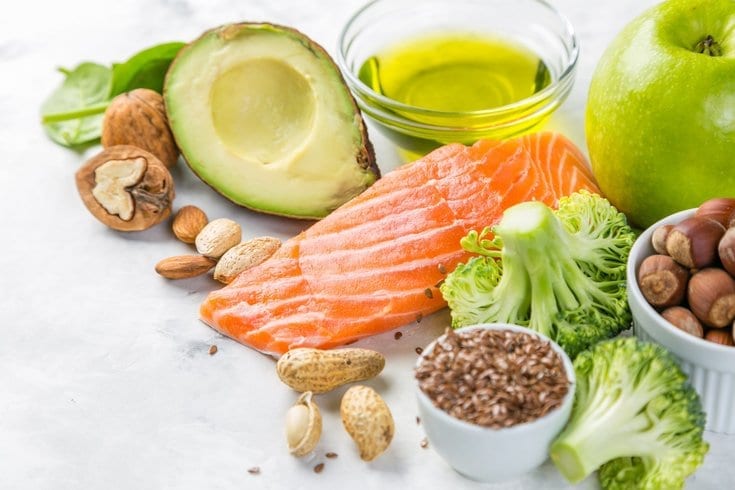Eating certain foods and drinking certain drinks can truly boost your immunity, when combined with other health practices like getting enough sleep and exercise, as well as meditating.
More and more research is showing that your diet is a super important indicator of how long you’ll live. In light of that, and the fact that March is National Nutrition Month, we have put together a list of foods and drinks to add to your plate so you can get boost and strengthen your immune system.Here are some of the top foods to add to your diet:
Cruciferous vegetables: Cruciferous vegetables, including broccoli, cauliflower, brussels sprouts, and kale, have the unique ability to modify human hormones, and activate the body’s natural detoxification system. The cruciferous phytochemical sulforaphane has also been found to protect the blood vessel wall from inflammatory signaling that can lead to heart disease.1 These vegetables should be chewed thoroughly or eaten shredded, chopped or juiced, to release their healthy properties.
Speaking of greens, raw leafy green vegetables are helpful too. They are rich in the essential B-vitamin folate, plus lutein and zeaxanthin, which are carotenoids that protect the eyes from light damage2. These greens include collard greens, mustard greens, spinach or lettuce. Drinking your greens is an easy way to get them into your diet too, if you don’t feel like snacking on them. Look for a powdered greens drink mix that contains organic and naturally-sourced grasses, ancient grains, fruits, vegetables, and alkalizing superfoods like chlorella and spirulina which will support your immune system.
Fatty Fish: We’ve always heard that fish is considered “brain food,” and with good reason! Research shows that compounds in fish called carotenoids can protect against some neurological diseases. Also, a study published in the BMJ (British Medical Journal) reinforces that the omega-3s in fatty fish-like salmon, tuna, and sardines—can help you live a longer, healthier life. After analyzing data from more than 2,600 American adults with the average age of 74, researchers from Tufts University found that people with higher levels of omega-3s in their blood (meaning they ate at least two servings of fish per week) had an 18 percent lower risk of unhealthy aging.3 This means they were less likely to suffer from chronic disease, experience cognitive decline, or having problems living their day-to-day life.
Nuts: Are almonds one of your favorite snacks? Well they could be adding years to your life! Two studies from the Harvard School of Public Health both found that the more often people ate nuts, the lower their risk of dying young. In fact, people who ate nuts twice daily were 20 percent less likely to die from heart disease and respiratory diseases, than those who don’t.4 Nuts are full of nutrients that protect your heart and fight inflammation, such as unsaturated fats, fiber, folate, vitamin E, potassium, magnesium, calcium, and antioxidants.
Berries: Who knew there could be such huge health benefits in such small packages? Berries are rich in antioxidants, including vitamins A, C, and E, which protect your cells from damage and disease. Some berries also contain resveratrol, which helps to lower inflammation and prevent clogged arteries. Additionally, berries contain nutrients called flavonoids, which give berries their brilliant colors and may help protect against inflammation and heart disease.5 Try and snack on some of these in your spare time: blueberries, raspberries, and blackberries.
Besides these foods above, incorporating a probiotic supplement can be helpful in keeping your digestive system running smoothly as you add these healthy foods to your diet, and can also promote healthy immune function. Look for one that is shelf-stable, clinically tested, DNA sequence verified, and one that does not require refrigeration.
While we are on the subject of healthy eating, there are many different diets out right now, with new ones being introduced every month. We recommend, instead of going all in with the current “fad” diet, start by making small, incremental changes in your life. For example, start by taking a closer look at your food, for instance, and making some healthy swaps. Then move onto the next area for improvement. Building slowly over time will help you create a new lifestyle in a relatively painless way, that you will be able to stick with.
References
- https://www.verywellhealth.com/best-foods-for-longevity-4005852
- https://www.verywellhealth.com/best-foods-for-longevity-4005852
- https://www.prevention.com/food-nutrition/g20473901/5-foods-to-eat-to-live-longer/
- https://www.nejm.org/doi/full/10.1056/NEJMoa1307352
- https://www.webmd.com/food-recipes/news/20160404/berries-nutrition-perks#1
This article is for informational purposes only. This article is not, nor is it intended to be, a substitute for professional medical advice, diagnosis, or treatment and should never be relied upon for specific medical advice.

Share this Post